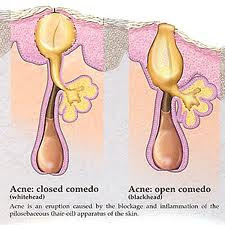
I'm considering having an acne facial done at a local salon. Can facials help clear up my skin?
Answer:
There really is no clear-cut answer to that question. The results you get from facial treatments depends on many factors, most importantly the severity of your acne, how often you have the procedure done, how consistent you are with your skin care regimen at home, and the skill of the esthetician performing the treatment.
People with blackheads and other non-inflammatory blemishes may indeed find regular facials help to reduce the amount of breakouts they experience. During a facial treatment, estheticians perform extractions by manually removing pore blockages, or comedones. By extracting these impactions, the pores are cleared of excess oil and cellular debris. Blemishes are less likely to form, improving some cases of non-inflammatory acne.
Mild inlammator ance can also be treated at the salon, but a dermatologist should see anyone who has moderate to severe acne. A good esthetician will know when a case of acne is beyond her expertise and will refer you to a doctor.
This isn't to say that those with more advanced cases of acne can't enjoy or benefit from regular facials. An esthetician can offer treatments complementary to a doctor's care. Some dermatologists even employ estheticians to perform facials right in their office.
During a facial, the esthetician begins by thoroughly cleansing the skin. Various masks, steam baths, and facial massage may be incorporated into the treatment. The esthetician may use products to reduce surface oil, remove dead skin cells, soothe, or hydrate. Your esthetician can also recommend products for at-home use, like cleansers and moisturizers, that won't aggravate your acne.
If the skin is at all inflamed, extractions should be held at a minimum if they are done at all. No one, not even an esthetician, should attempt to extract deep inflamed blemishes such as nodules and cysts.
If you decide to make facials a part of your skin care routine, remember you will get the best results if they are done regularly. Be sure to tell your esthetician about all topical and oral medications you are currently using to avoid unwanted reactions. For example, vigoro exfoliation should not be done on anyone taking Accutane(isotretinoin) or using topical retinoids like Differin or Retin A. If a dermatologist is treating your acne, it's always a good idea to talk to him or her before having any facial treatment done.






.jpg)

0 comments:
Post a Comment